Maths
Overview of Department
At Rye College, we want to create brighter by inspiring our students towards becoming as passionate and enthusiastic about Mathematics as we are.
In Years 7 and 8, we ensure students secure their learning of number, and then introduce and develop new topics to build upon their skills to develop a strong understanding of Mathematics. In addition, we introduce students to a range of problem-solving strategies. We have a cyclical curriculum to ensure that students repeat topics and therefore have greater retrieval skills. This supports students in studying a topic but in progressively greater depth each year.
Curriculum Statement: Values and Aims
The Mathematics Department at Rye College are dedicated to ensuring that not only are students ready and well prepared for their Mathematics GCSE examinations, but that they are able to use their mathematical knowledge to problem solve effectively and to use these skills in the real world to make great financial decisions. Mathematics features in every aspect of our lives and is such an important part of the world we live in, having a strong understanding of mathematics helps to create bright futures for all.
Mathematics encourages creative and innovative thinking through the acquisition and application of mathematical knowledge. A high-quality mathematics education therefore provides a foundation for understanding the world, the ability to reason mathematically, an appreciation of the beauty and power of mathematics and a sense of enjoyment and curiosity of the subject
Key Stage 3 Mathematics
At Rye College, we want to create brighter futures for all by inspiring our students to become as passionate and as enthusiastic about Mathematics as we are.
The aims of our curriculum is for students to become fluent in the fundamental of mathematics, be able to reason mathematically by following a line of enquiry and can solve problems but be able to persevere in seeking solutions.
In Years 7 and 8, we ensure students secure their learning of number, and then introduce and develop new topics to build upon their skills to develop a strong understanding of Mathematics. In addition, we introduce students to a range of problem-solving strategies. We have a cyclical curriculum to ensure that students repeat topics and therefore have greater retrieval skills. This supports students in studying a topic but in progressively greater depth each year.
GCSE Mathematics
The Mathematics content has been divided into six main domains: Number; Algebra; Ratio, Proportion and rates of change; Geometry and measures; Probability; and Statistics.
At Key Stage 4 our curriculum builds upon the strong foundation skills and knowledge laid at Key Stage 3. For example, to develop students' mathematical fluency students will consolidate their numerical and mathematical capability from key stage 3 and extend their understanding of the number system to include powers and roots. To develop their ability to reason mathematically students will extend and formalise their knowledge of ratio and proportion, including trigonometric ratios. As an example of how students will develop their ability to solve problems students will progress to solving and evaluating the outcome of problems including problems with multiple steps
All six areas are assessed via three external examinations. Examinations make up 100% of the assessment. Paper 1 is a non-calculator assessment whereas a calculator is allowed for Papers 2 and 3. All papers are 90 minutes in duration and contribute equally to the overall grade. There are two tiers available: ‘Foundation’ tier, with Grades 1-5 available; and ‘Higher’ tier, with Grades 4-9 available. Students sit all three exams at the same tier. The College decides the tier of entry.
GCSE Mathematics is an important qualification for many courses and careers. Almost all jobs and careers require GCSE Mathematics, but the following are some that use Mathematics extensively: Economics, Medicine, Architecture, Engineering, Accountancy, Teaching, Psychology, Computing, Banking, Insurance, Marketing, Pharmacy, Science, Environmental Studies and Business Management.
The Mathematics Department offer a Year 11 revision club every week to help improve students’ progress.
Progression Routes
From GCSE Mathematics, students can progress on to study Mathematics at A-Level. Maths is now the most popular A –level because of its fundamental importance in all current and future careers. Some career examples include Environmental Scientist, Data Analyst, Acturist accountant, computer programmer, doctor, engineer, teaching, physicist, and construction. In fact, many careers are underpinned by Mathematics so this list would be extensive.
